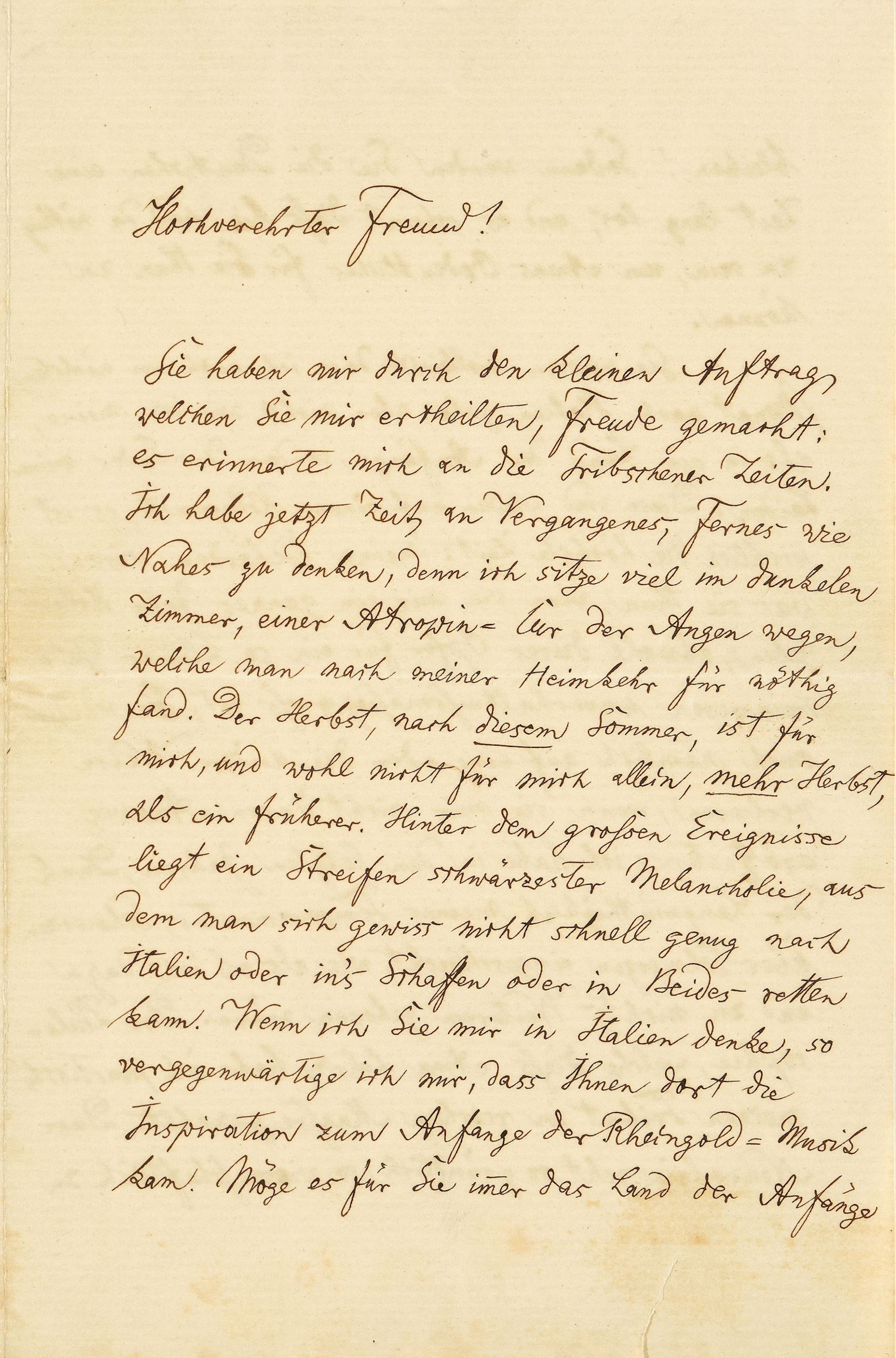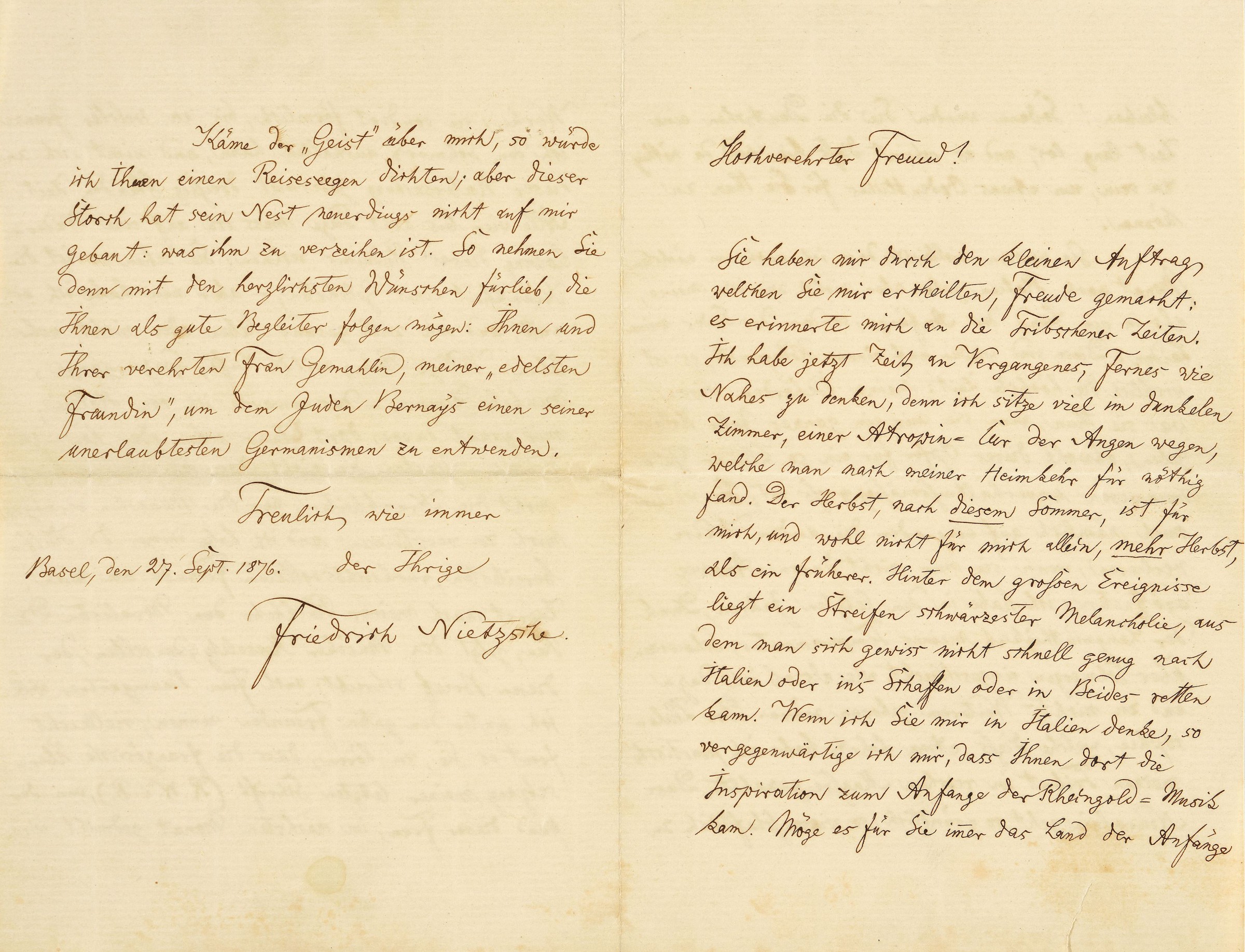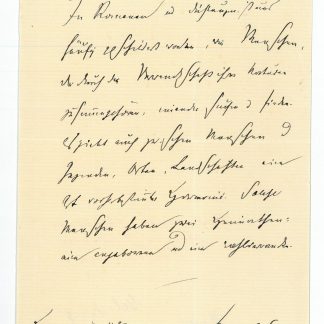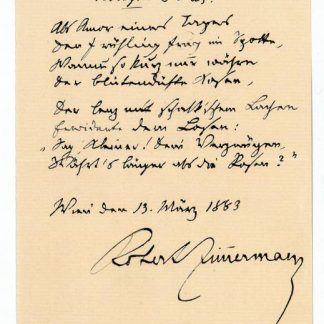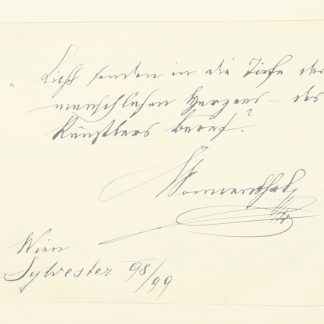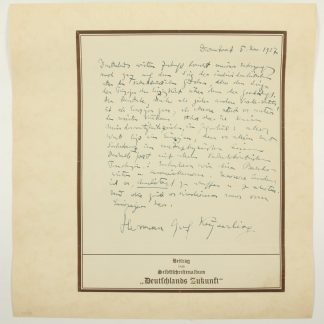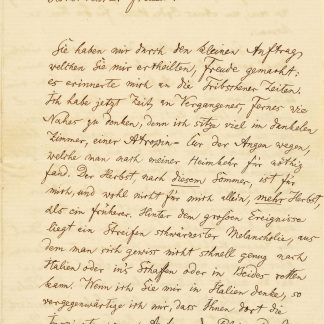"Behind the great events lies a streak of blackest melancholy"
Autograph letter signed ("Friedrich Nietzsche").
8vo. 3½ pp. on bifolium. In German.
€ 85,000.00
To Richard Wagner, who in a previous telegram from Venice had requested Nietzsche to purchase for him "two pairs of silk vests and underpants of the finest Basel make" and send them to Bologna, where he was travelling after the financial failure of the August 1876 Bayreuth Festival. Nietzsche's response would have accompanied his shipment of these garments:
"Highly esteemed friend! It was a pleasure to do the small task you gave me: it reminded me of the times at Tribschen. I now have time to think about things past, far and near, since I sit a lot in a dark room, due to an atropine treatment for my eyes that was found to be necessary after my return home. The autumn, after this summer, is more autumn for me, and probably not for me alone, than any previous one. Behind the great events lies a streak of blackest melancholy, from which one certainly cannot escape soon enough to Italy or to work or both. When I think of you in Italy, I recall that it was there that you got the inspiration for the beginning of the Rheingold music. May it always remain the land of beginnings for you! So then you will be rid of the Germans for a while, and this seems to be necessary every so often in order to be able to really do something for them. Perhaps you know that I am going to Italy next month too, but not, as I said, into a land of beginnings, but of the end of my sufferings. These are again at a climax; it is really high time: my authorities know what they are doing by giving me an entire year of leave, although this sacrifice is disproportionately great for such a small community; for they would lose me one way or another if they did not give me this way out; in the last few years, thanks to the forbearance of my temperament, I have swallowed pain after pain, as if I were born for that and nothing else. To the philosophy which teaches something like this, I have paid my practical tribute in abundance. This neuralgia goes to work so thoroughly, so scientifically, it literally probes the limit to what extent I can bear the pain, and each time it takes thirty hours for this examination. Every four to eight days I have to count on a recurrance of this study: you see, it is a scholar's illness; - but now I'm sick of it and I want to live healthily or not live at all. Complete quiet, mild air, walks, dark rooms - that's what I expect from Italy; I dread having to see or hear anything there. Do not think that I am morose; not illnesses, only people can upset me, and I always have the most helpful, considerate friends around me. First, after my return, the moralist Dr. Rée, now the musician Köselitz, the same person who is writing this letter; I will also name Frau Baumgartner among the good friends; perhaps you will be glad to hear that the French translation by this woman of my last work (R[ichard] W[agner] i[n] B[ayreuth]) will be printed next month. If the 'spirit' came over me, I would write a travel blessing for you; but this stork has not built its nest on me lately: which is forgivable. So then please accept my heartfelt wishes which may follow you as good companions: you and your respected wife, my 'noblest friend', to steal from the Jew Bernays one of his most impermissible Germanisms [...]" (transl.).
Light browning; insignificant dampstaining; small tear to lower edge.
KGB 2.5, pp. 190-192, no. 556 ("whereabouts unknown").

